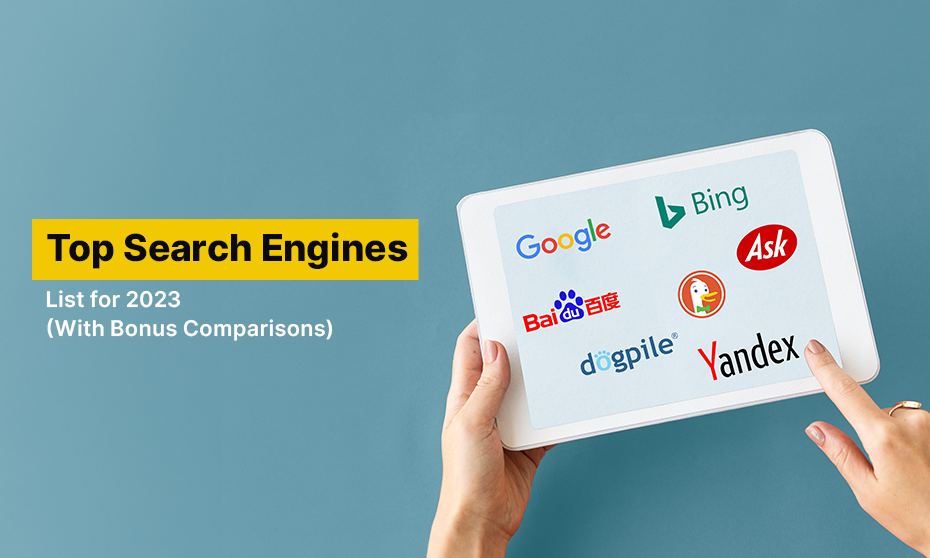In today’s fast-paced digital age, search engines have become an indispensable part of our daily lives. Whether you’re looking for the latest news, researching a topic, or simply trying to find a nearby restaurant, search engines are the go-to tools that help us navigate the vast ocean of information available online. But what exactly are and how do they work behind the scenes to deliver relevant results in the blink of an eye? Let’s dive into the fascinating world of search engines and explore their inner workings, evolution, and impact on our digital experience.
What Are Search Engines and Why Do They Matter?
At their core, search engines are sophisticated software systems designed to search for information on the internet. They scan billions of web pages, images, videos, and other types of content to provide users with the most relevant results based on their queries. Think of a search engine as a massive digital librarian that organizes and indexes the entire web, making it easy for you to find exactly what you need without sifting through endless pages manually.
The importance of search engines cannot be overstated. They serve as the primary gateway to the internet for most users, shaping how we access knowledge, communicate, and even shop. Without search engines, the internet would be a chaotic and overwhelming place, with valuable information buried under layers of irrelevant content. By delivering precise and timely results empower users to make informed decisions, discover new ideas, and connect with others around the globe.
How Search Engines Work: The Magic Behind the Scenes
Understanding how search engines operate can seem like peering into a black box, but the process is both logical and fascinating. It all starts with crawling, indexing, and ranking — three fundamental steps that ensure you get the best possible answers to your queries.
Crawling is the process where send out automated bots, often called spiders or crawlers, to explore the web. These bots follow links from one page to another, gathering data about the content they encounter. This continuous exploration helps search engines keep their databases up to date with fresh and relevant information.
Once the data is collected, it moves to the indexing phase. Here, the search engine organizes and stores the information in massive databases, categorizing it based on keywords, topics, and other factors. This index acts like a giant library catalog, allowing the search engine to quickly retrieve relevant pages when a user enters a query.
The final step is ranking, where the search engine evaluates all indexed pages to determine which ones best match the user’s intent. This involves complex algorithms that consider hundreds of factors, such as keyword relevance, page quality, user experience, and even the credibility of the source. The goal is to present results that are not only accurate but also useful and trustworthy.
The Evolution of Search Engines: From Simple Directories to AI-Powered Tools
Search engines have come a long way since their inception. Early versions were basic directories that required manual submission of websites and offered limited search capabilities. Over time, advancements in technology and the explosion of online content pushed to become more sophisticated and automated.
The introduction of algorithm-based search engines revolutionized the way we find information. Instead of relying on human-curated lists, these engines used mathematical formulas to rank pages based on relevance and popularity. This shift made search results more dynamic and personalized, adapting to the ever-changing web landscape.
In recent years, artificial intelligence and machine learning have taken search engines to new heights. Modern can understand natural language queries, interpret context, and even predict user intent. Features like voice search, image recognition, and personalized recommendations have transformed the search experience, making it more intuitive and interactive than ever before.
The Impact of Search Engines on Society and Business
The influence of search engines extends far beyond just helping individuals find information. They have reshaped entire industries and altered how businesses connect with customers. For companies, appearing prominently in search results can mean the difference between success and obscurity. This has given rise to search engine optimization (SEO), a critical practice focused on improving website visibility and ranking.
On a societal level, search engines have democratized access to knowledge, breaking down barriers and enabling people worldwide to learn, share, and innovate. However, this power also comes with challenges, such as concerns over privacy, misinformation, and the dominance of a few major players in the search market.
Despite these issues, search engines remain a cornerstone of the digital ecosystem, continually evolving to meet the needs of users and businesses alike. Their ability to connect people with relevant information quickly and efficiently makes them one of the most transformative technologies of our time.
Future Trends in Search Engines: What Lies Ahead?
Looking forward, the future of search engines promises even more exciting developments. As artificial intelligence continues to advance, will become smarter, more personalized, and capable of understanding complex queries with greater accuracy. We can expect deeper integration with other technologies like augmented reality, virtual assistants, and the Internet of Things, creating seamless and immersive search experiences.
Privacy and ethical considerations will also play a significant role in shaping the future of search engines. Users are becoming increasingly aware of how their data is used, pushing search providers to adopt more transparent and user-centric approaches.
In summary
search engines are not just tools; they are dynamic platforms that connect us to the vast digital universe. Their ongoing evolution will continue to influence how we access information, interact with technology, and navigate the world around us. Whether you’re a casual user or a digital professional, understanding search engines is key to unlocking the full potential of the internet.




